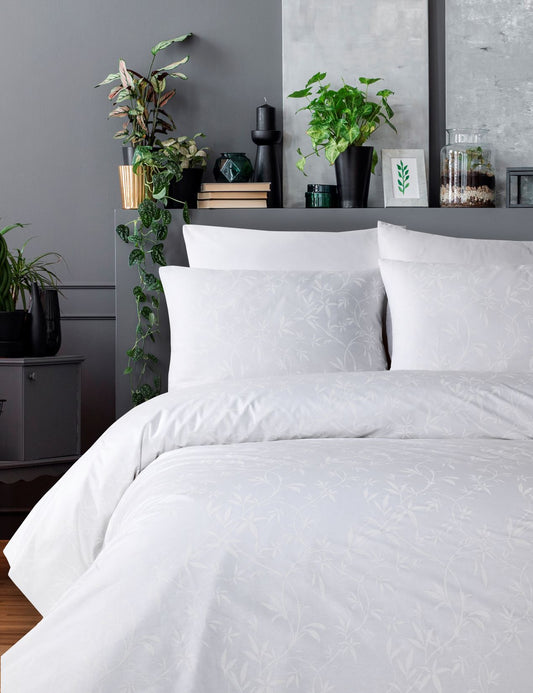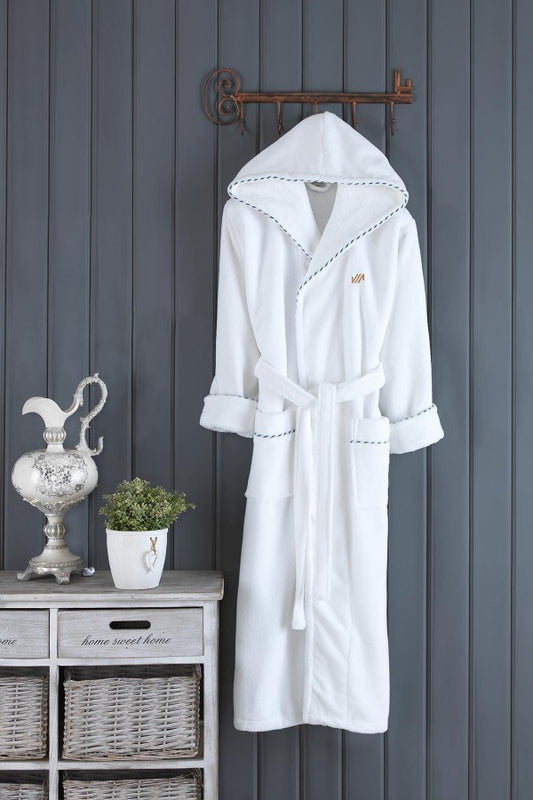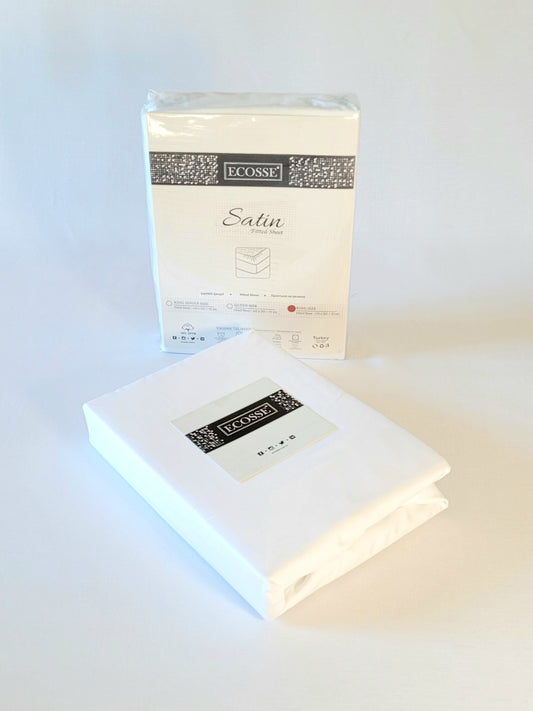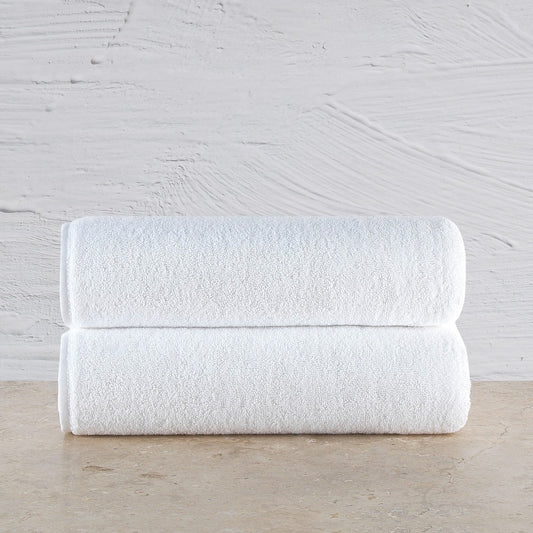Companies selling bedding sets, sheets, and bed linen often display fabric thread counts ranging from 50 TC to astonishing 2000 TC. However, it is important to note that such inflated numbers can be misleading, with companies exaggerating thread counts to take advantage of consumers' belief that higher thread counts equate to higher quality, durability, and comfort.
Let's take a look at what does thread count actually mean, and is it possible to have such a big difference in fabric density? Does the higher Thread Count correlate with better quality? The short answer is - no.
What is Thread Count and How It Is Calculated?

Thread Count also known as threadcount or threads per inch (TPI) refers to the number of threads woven into one square inch of fabric. The threads are woven in a crosshatch pattern. The sum of horizontal and vertical lines (known in the textile industry as weft and warp) represents the total number of threads per square inch.
Higher Thread Count is Better, Right? No.
When the next time you see astonishing 1000TC or even 1900TC on a bed sheet, duvet cover, or bedding set you are about to buy, do the math. Even if we consider a 1000 TC:
1 inch or 2.54cm / (1000 TC / 2 sides of a 1 inch square) = 0.00508 cm = 0.05mm - is the expected thickness of a single thread on 1000TC bed sheet. Let's put that into perspective:
- The thickness of a human hair is 0.02mm.
- The thickness of aluminum foil is 0.2mm.
Even if it would be possible to spin the cotton yarn that thin, it would simply tear apart with a very light force applied to the fabric.
How Do Thread Counts Get Inflated Then?
It's a marketing strategy. Inflated thread counts are usually the result of including the number of strands in a twisted yarn in the claimed thread count. Twisted yarn quality is often quite poor and can deteriorate quickly.
Alternatively, overlapping threads (similar to two-ply toilet paper) and additional weaving techniques can be used, resulting in heavy, coarse, and less durable fabric.
Did you know that not all cotton yarns are created equal? They vary in terms of length and thickness, which directly impact their quality. It's worth noting that products claiming exceptionally high thread counts (500-1000) often use weaker and shorter yarns. As a result, these sheets end up being heavier and can restrict airflow while you sleep, which is counterproductive for maintaining a comfortable sleeping temperature.
What's the Best Thread Count?
The breakdown is as follows:
- Low: 50-75 TC
- Below average: 80-100 TC
- Average: 100-180 TC
- Good: 180-210 TC (Percale)
- High: 200-300 TC (Sateen)
- Very High: 300-400 TC (Jacquard and Striped Sateen)
Is the Threat Count a Reliable Measure?
Yes, but only when you know that anything above 400 TC means that “creative mathematics” or simply deception was involved in calculating that number.
One major factor to consider when you are choosing premium quality bedding set, bed sheet, or a duvet cover are fabric/material and weave used in its production. Therefore, prices for different types of cotton from different regions can vary significantly. The highest quality cotton is considered to be from the Aegean region of Turkey and certain varieties from California. Egyptian cotton varieties follow, and then the rest.
What Makes It Premium Quality?
Premium-class cotton stands out with long, strong, and smooth threads, which give the fabric woven from this cotton strength, smoothness, and softness. Such bed linen not only lasts a long time but also creates a unique coziness and comfort.
The strongest types of cotton weave are (in increasing order) - Percale (also known as Cambric), Sateen, and finally Jacquard. Moreover, all these types of fabric are very soft, and their softness increases after washing.
What is Organic Cotton?
Another important factor to consider is that our skin comes into contact with bed linen for 6-8 hours a day. If chemical fertilizers and pesticides were used during cotton cultivation, their components will remain in the fibers, which can have a negative impact on your skin and overall health. Therefore, we recommend to purchase bed linen made from Organic Cotton. Organic cotton is grown without the use of pesticides and chemical fertilizers.
Explore our Bedding sets, Sheets, and Hotel Quality range.






